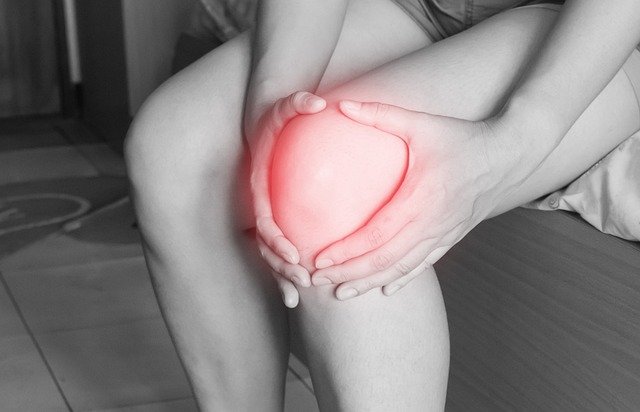Effective Knee Pain Treatment: A Comprehensive Guide
Knee pain can significantly impact daily life, limiting mobility and overall comfort. An effective treatment approach begins with understanding the underlying cause—whether it’s injury, arthritis, overuse, or other conditions. A comprehensive plan often includes a combination of rest, targeted exercises, physical therapy, and, when needed, medications or minimally invasive procedures. Lifestyle adjustments, such as maintaining a healthy weight and using supportive footwear, can also play a key role in reducing strain on the joint. By addressing both symptom relief and long-term joint health, individuals can restore function, prevent future problems, and enjoy improved quality of life.

What Are the Common Causes of Knee Pain?
Understanding the root cause of knee pain is the first step towards effective treatment. Knee pain can stem from various factors, including:
-
Osteoarthritis: The most common form of arthritis affecting the knees, characterized by the breakdown of cartilage.
-
Injuries: Such as ligament tears, meniscus damage, or fractures.
-
Overuse: Repetitive stress on the knee joint from activities like running or cycling.
-
Bursitis: Inflammation of the small fluid-filled sacs that cushion the knee joint.
-
Tendinitis: Inflammation of the tendons connecting muscles to bones.
Identifying the specific cause of your knee pain is crucial for determining the most appropriate treatment approach.
Which Home Remedies Can Provide Knee Pain Relief?
For mild to moderate knee pain, several home remedies can offer significant relief:
-
RICE Method: Rest, Ice, Compression, and Elevation can help reduce pain and swelling.
-
Over-the-counter pain relievers: Non-steroidal anti-inflammatory drugs (NSAIDs) like ibuprofen can help manage pain and inflammation.
-
Gentle exercises: Low-impact activities such as swimming or stationary cycling can improve knee strength and flexibility.
-
Heat therapy: Applying warmth to the knee can increase blood flow and reduce stiffness.
-
Weight management: Maintaining a healthy weight reduces stress on the knees.
These home remedies can be particularly effective for minor knee discomfort and as part of a broader treatment plan for chronic conditions.
What Medical Treatments Are Available for Knee Pain?
When home remedies prove insufficient, medical treatments can provide more advanced solutions:
-
Prescription medications: Stronger pain relievers or anti-inflammatory drugs may be prescribed for severe pain.
-
Physical therapy: Tailored exercises and techniques to strengthen the knee and improve flexibility.
-
Corticosteroid injections: To reduce inflammation and provide temporary pain relief.
-
Hyaluronic acid injections: To improve joint lubrication in cases of osteoarthritis.
-
Surgery: For severe cases, procedures such as arthroscopy, partial or total knee replacement may be recommended.
The choice of medical treatment depends on the underlying cause, severity of pain, and individual patient factors.
How Can Lifestyle Changes Prevent and Manage Knee Pain?
Adopting certain lifestyle changes can significantly impact knee health:
-
Regular exercise: Low-impact activities that strengthen the muscles supporting the knee.
-
Proper footwear: Wearing shoes with good support and cushioning.
-
Maintaining a healthy weight: Reduces stress on the knee joints.
-
Proper posture and body mechanics: Especially important during physical activities.
-
Balanced diet: Including anti-inflammatory foods and supplements like omega-3 fatty acids.
These preventive measures can help manage existing knee pain and reduce the risk of future problems.
What Alternative Therapies Are Effective for Knee Pain Management?
Many individuals find relief through alternative therapies:
-
Acupuncture: Can help reduce pain and improve function in some cases.
-
Massage therapy: May alleviate muscle tension and improve circulation around the knee.
-
Yoga and tai chi: Gentle exercises that improve flexibility and balance.
-
Glucosamine and chondroitin supplements: May help in managing osteoarthritis symptoms.
-
Topical creams: Containing ingredients like capsaicin or menthol can provide localized relief.
While scientific evidence varies for these therapies, many people report significant benefits when used alongside conventional treatments.
What Are the Costs Associated with Knee Pain Treatment?
The cost of knee pain treatment can vary widely depending on the type and intensity of care required:
| Treatment Type | Provider | Cost Estimation |
|---|---|---|
| Physical Therapy | Outpatient Clinic | $50 - $350 per session |
| Corticosteroid Injection | Orthopedic Specialist | $100 - $300 per injection |
| Knee Arthroscopy | Hospital | $5,000 - $25,000 |
| Total Knee Replacement | Hospital | $30,000 - $50,000 |
| Acupuncture | Licensed Acupuncturist | $50 - $150 per session |
Prices, rates, or cost estimates mentioned in this article are based on the latest available information but may change over time. Independent research is advised before making financial decisions.
Effective knee pain treatment often involves a combination of approaches tailored to individual needs. From simple home remedies to advanced medical interventions, the options are diverse. It’s crucial to work closely with healthcare professionals to develop a comprehensive treatment plan that addresses the root cause of your knee pain while considering your lifestyle and preferences. By understanding the various treatment options and adopting preventive measures, you can take significant steps towards managing knee pain and improving your overall quality of life.
This article is for informational purposes only and should not be considered medical advice. Please consult a qualified healthcare professional for personalized guidance and treatment.




